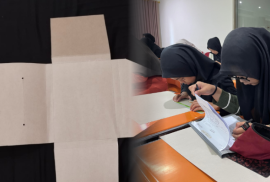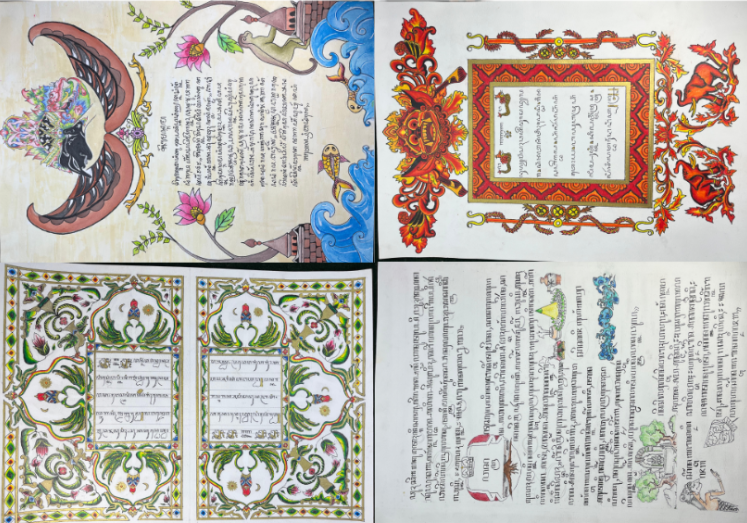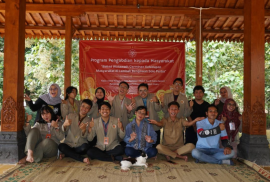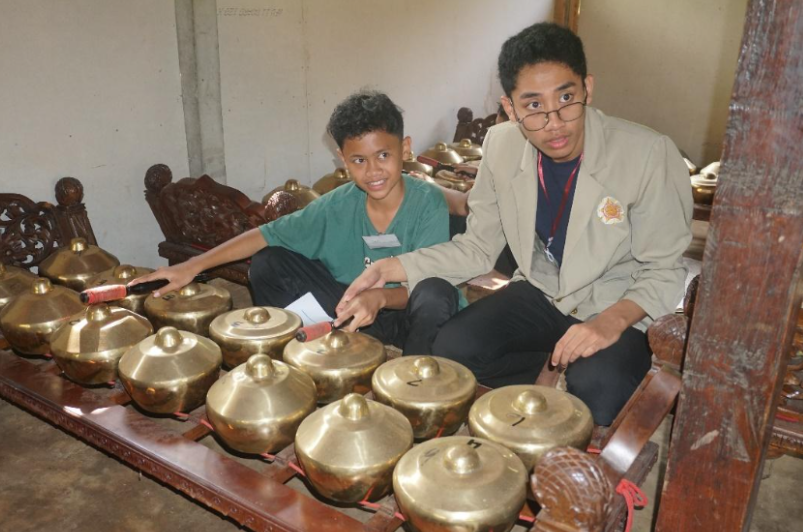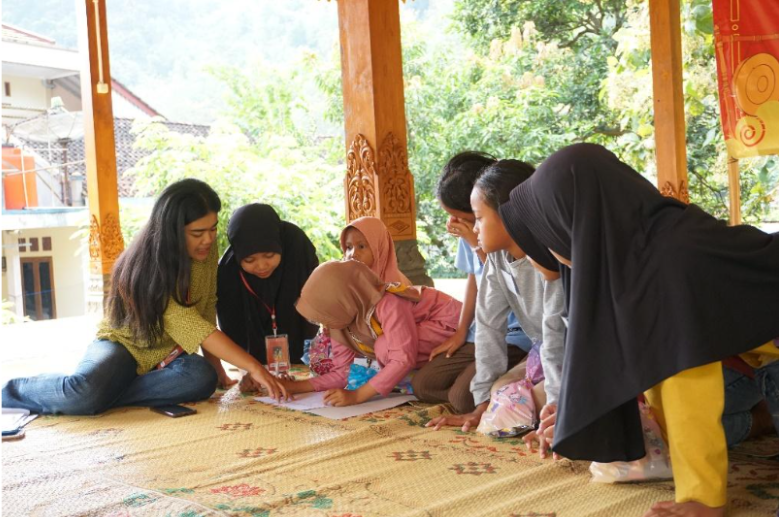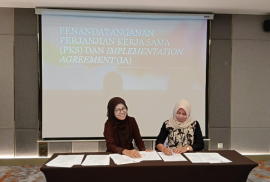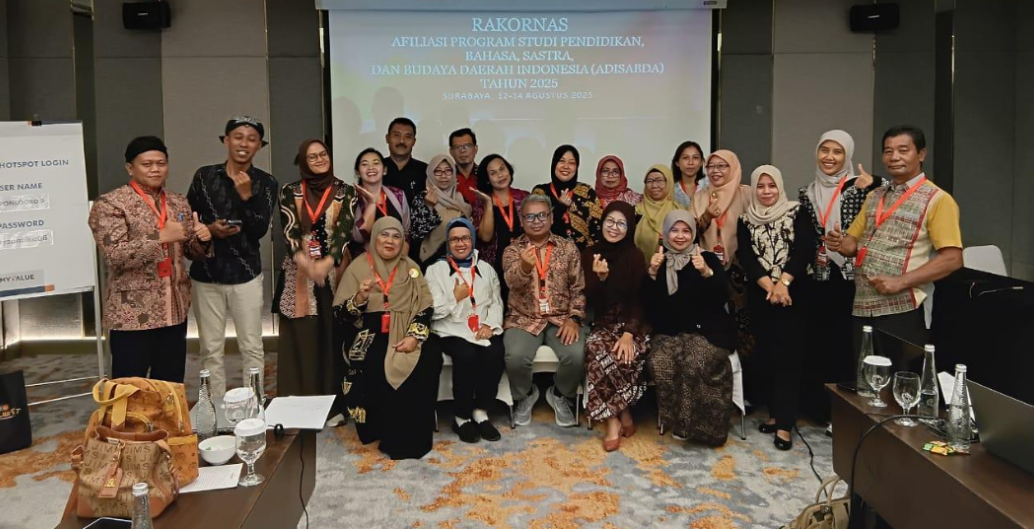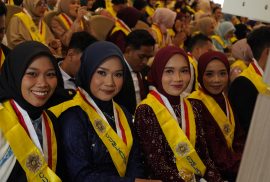Until the Final Semester Exam period, the excitement of the Codicology course never ends. After taking students of the Javanese Language, Literature, and Culture study program to visit three libraries in Yogyakarta, this time the students are invited to practice making manuscript protectors and creating manuscripts.
As the name implies, a manuscript protector is a box specially designed to protect ancient manuscripts from physical damage and degradation due to environmental exposure. This box is usually made of non-acidic and neutral materials, such as sirio black cardboard, to prevent further damage to ancient manuscripts. This manuscript protector box is usually made for rare books, manuscripts, or libraries that are old and fragile.
Students learn to make this manuscript protector with the aim that students understand the basic dimensions of making a protective box and can apply it one day if needed. Many places or libraries need this skill.
In addition to making manuscript protectors, in the following week, students are invited to create manuscripts. The manuscripts of these students’ works will later be published in a book published in the context of the retirement of a senior lecturer, namely Dr. Sri Ratna Saktimulya, M.Hum. Students are free to create and work on their own manuscripts. Text materials can be taken from existing manuscripts, or self-made. However, in the process, students are required to add illustrations in the form of rerenggan, gapura renggan, wedana renggan, or rubrication.
Students are divided into 16 groups, with each group creating one work. With these practices, students can apply the material obtained during one semester into their own handmade work. Of course, this will be very impressive, especially if it will be published later.
Authors: Haryo Untoro

